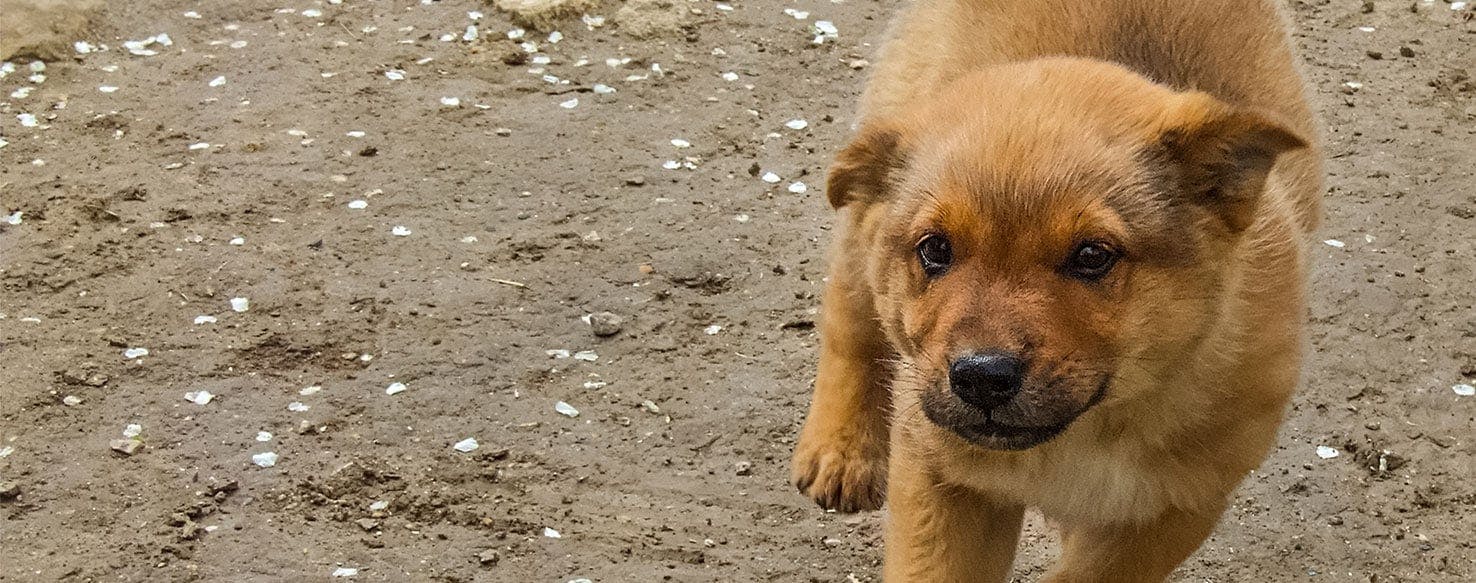- Home
- The Daily Wag!
- Senses
- Can Dogs Feel Mosquito Bites?

Dogs are curious creatures and often follow their noses, sniffing and exploring new places. However, these places can be home to a number of insects, including the pesky mosquito. Mosquitoes are a nuisance for dogs just as they are for us humans. Not only can mosquito bites cause irritation like itching, but mosquitoes can also spread infections.
We may think that mosquitoes aren't really a big factor for furry animals like dogs, but dogs can still get bitten, especially in areas with thinner fur coverage, like the nose and ears.
Dogs and cats experience the same itching and irritation around mosquito bites as we do. However, a more serious concern is the spread of disease, like heartworm.
Because many insect bites on dogs can lead to numerous reactions, it is important to recognize the different kinds of bites and their symptoms. Mosquito bites can be identified based on signs of itching, irritation, or simply by the presence of mosquitoes. Mosquito bites that carry infection are hard to tell apart from those that don’t - so make sure you regularly test for heartworm or when potential symptoms are already present.
Body Language
Some signs your pup has been bitten may include:
- Scratching
- Weakness
- Sleepiness
Other Signs
Some other signs your pup has been bitten may include:
- Diarrhea Or Vomiting
- Fever
- Wheezing
- Swelling Of The Eyelids Or Ear Flaps
- Red Bumps On The Skin
Blood-suckers like mosquitoes, fleas, or ticks, can cause swelling and irritation around the bite mark. Certain compounds in the saliva of these insects tend to aggravate dog's skin, causing tiny bumps or irritation on the skin. The biggest problem about mosquito bites (besides their annoying itch and inflammation), is the risk of the heartworm. Heartworm is a parasite that is carried via mosquitoes from one animal to the next. If left untreated, heartworm can cause life-threatening heart and lung infections in dogs. It is important that you protect your dog from mosquito bites in order to reduce your pup's risk of contracting heartworm.
Mosquitoes have several stages in their lives, which evolve over the course of four days to two weeks, depending on the environment. Adult females lay the eggs, usually close to water since mosquito eggs need water exposure to hatch. The baby mosquitoes, or larva, start as a small worm that lives and feeds in the water, coming to the surface to breathe.
Right before the adult mosquito emerges is the transition stage. adolescent mosquitoes remain in the water, refraining from feeding while a hard case develops to protect the aging mosquito. Shortly after emerging, mosquitoes will take to the air. The females will bite humans and other animals such as dogs, often spreading diseases like heartworm from one host to another.
Dogs are natural hosts for heartworms, meaning that heartworms can live inside dogs as they mature into adults and produce offspring. If left untreated, their numbers can increase. Heartworm can cause lasting damage to a dog's heart, lungs, and arteries. This ultimately affects the dog’s health and long-term quality of life, even after the parasites are gone. Because of this, prevention is the best option, and treatment should be given as early as possible.
Insect repellent used on humans is often unsafe for dogs. Any insect repellant designed for humans, especially sprays that contain a chemical called DEET, may be toxic and should be avoided. The best way to help your pup is to select an insect repellant made for your pooch. You can find the best kind by consulting with your veterinarian. Environmental repellants, like sandalwood or citronella candles, may be a better option if you cannot find a spray that is safe for your pooch.
There are also some home remedies you can use to treat insect bites on dogs that are safe and effective:
- Aloe vera gel can help sooth the pain and burning sensation from a sting or bite.
- Applying a mixture of baking soda and water several times a day can help reduce the size of bumps.
- Milk of magnesia, calamine lotion, or hydrocortisone cream can help soothe irritation. You can apply regular oatmeal on the bite site to help relieve the irritation.
Mosquito control is very important in order to keep the risk of heartworm at a minimum. Minimizing your dog's time outdoors, especially in swampy conditions, and controlling the mosquito population in your local environment are great preventative measures.
Have questions or concerns about your pet?
Chat with a veterinary professional in the Wag! app 24/7.
Get Vet ChatSafety Tips for Mosquito Bite Prevention:
- Use insect repellants with caution; make sure it is meant for dogs.
- Monthly preventive medication can be given to dogs and is usually effective at eliminating the risk of infection.
- Use screens on your windows and doors to prevent mosquitoes from entering.
- Avoid walking your pup in marshy places.
- Because mosquitos breed and thrive in standing water, remove sources of stagnant water around your home and change water bowls frequently.
Written by Olivia Gerth
Veterinary reviewed by:
Published: 03/23/2018, edited: 04/06/2020
More articles by Olivia Gerth

